Eleanor Friedberger first made her mark singing in the quirky, eclectic indie rock band The Fiery Furnaces, a duo with her older brother Matthew formed in 2000. After seven always-interesting albums that explored a variety of musical styles and ideas, The Fiery Furnaces went on hiatus in 2011. Since then, Friedberger has released two solo albums with clever, thoughtful lyrics and a wonderful indie pop sound, and another solo album is in the works.
This interview was for a preview article for Friedberger’s concert at Velvet Jones on 2/28/15. It was done by phone on 2/12/15.
Jeff Moehlis: I saw The Fiery Furnaces back in 2009, the night before New Year’s Eve at Schubas Tavern in Chicago. I remember after the show I talked to your brother at the merch table, and was trying to convince him that you guys should come play in Santa Barbara. I’m curious, have you ever performed in Santa Barbara before, either solo or with The Fiery Furnaces?
Eleanor Friedberger: Nope, never. So I’m excited for this show. I’ve been to Santa Barbara once. I wish I could remember the name of the venue, but I was with my friend Britt Daniel, who is in the band Spoon. I was traveling with him – he did a solo tour down the West Coast in January of 2000. He had a show booked in Santa Barbara, and I remember showing up with him, and the promoter had screwed up or something but there wasn’t anybody there, and it was a restaurant or something so he was just like, “Fuck this” and left. That’s the only time I’ve ever been to Santa Barbara. I’m hoping that that’s not going to happen to us. Yeah, I look forward to it. I’m excited to play in Santa Cruz and Santa Barbara, San Diego – places that I don’t normally get to play.
JM: What can we look forward to at the upcoming show?
EF: I don’t know if this is something that people find annoying or fun, but the purpose for being out on the West Coast for a couple of months is to work on new songs for my next record. I’ve been practicing with my bandmates five days a week in Los Angeles, and we’re learning a lot of new stuff. So we’re going to try out a bunch of new songs at the show. And if they work out, they’ll be on the next record. So that’s the idea. I mean, I’m going to play music from both of my solo records, but we’re trying to figure out if these songs work. I’m curious to see people’s reactions and that kind of thing.
JM: I know that your last record was at least partially recorded in L.A., and you don’t live here generally. What are your impressions of this part of the world?
EF: Oh my gosh. As a Midwesterner from Chicago, Southern California – all of California – is incredibly exotic. It still is. I don’t understand how people live here all the time because I just feel like I’m on vacation. Every day we’ve been coming out of this rehearsal space which is windowless, and we go outside for ten minutes, and I never stop saying, “It’s so nice out!” And watching the news and seeing pictures back home in New York… I would like to do this the rest of my life – spend the winter in California. I don’t know if I’ll be able to do that. I love it. Driving is a pain, but even that you kind of get into your rhythm of what you’re doing and what you’re thinking about in the car. And I’m kind of a sucker for the sun. It definitely enhances my mood. I’m one of those people. I love it. It’s cliche, but the light and all the trees and the plants here – I’m just a sucker for all of it. I love it. You know, I’m looking at cypress trees right now. It’s crazy.
JM: Maybe you just need to record a new album in California every winter [EF laughs]. What made it the right time for you to go the solo route four or five years ago?
EF: I wish I had a better answer, but my brother and I had been working together for over ten years. The most simple way to say it is that ten years is a long time to have any job. You know, it was just time for a change. And more practically speaking, my brother had moved to Paris. We had just been on a relentless schedule and pace, putting out so many records in such a short amount of time. Working with one person, I don’t think it’s the healthiest way to be, necessarily. And in the past four years I’ve played with more people than I’ve played with in twelve years before that. It’s been so great for me to play with all different people. But there wasn’t a moment of realization, I don’t think. Except I kind of felt like now or never.
JM: I would imagine there might be good and less comfortable things about being in a band with a sibling.
EF: Yeah, I mean all those things are true. It feels simultaneously safe and good, and also not cool and not fun [laughs]. It’s equal parts.
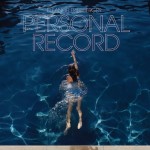
JM: For your last record you co-wrote songs with Wesley Stace. How did you connect up with him, and how did that process work?
EF: We met at a Bob Dylan tribute concert where we both sang songs. He has this show that he does in New York and elsewhere called the Cabinet of Wonders, where it’s basically like a variety show. He’s constantly recruiting people to do that show, so he asked my brother and I do it, and my brother couldn’t do it or he wasn’t around, and I did it. He’s good at bringing out the best in people. We just became fast friends. Although we live in different cities we wrote songs via email, which is something I never thought I could do. He’s a writer in addition to being a musician, so it was fun keeping up this correspondence with him that was all about songwriter, and then actually writing songs.
JM: Are you working with him on the new material?
EF: No. I’ve been playing with a group of people that I toured with for the last record, and it’s exciting to do the traditional route, which I’ve never done. I have some songs and we’re working on them together and fleshing them out, and arranging them. And then these guys are actually going to record the record with me, and then we’ll tour on those songs. I know that’s what most bands do, but I’ve never actually done it that way.
JM: This is kind of a random question about a song on your latest record, “When I Knew”. And I know that this isn’t the most important part of the song, but I thought it was cool that you mentioned the band Soft Machine, in the context of “weird music”. Do you have any favorite “weird music” that you would recommend to people?
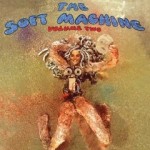
EF: Well, I recommend the second Soft Machine record.
JM: That’s my favorite of their’s.
EF: My favorite song is “As Long as He Lies Perfectly Still”. That one song in particular, I was painting the inside of my house and I probably listened to that song 40 times on repeat, which is how I tend to listen to music these days. I’ll just listen to the same song over and over again. I don’t know if that’s a crazy person’s way of doing it.
Other weird music, I don’t know. I went to see a show here in L.A. a few weeks ago, and one of the guys who was performing – I won’t say who – said, “I’ve been listening to your records a lot, and I like them. It’s so funny, they’re just not cool at all.” [laughs] He’s like, “They’re so good, though, but it’s just not cool.” I was like, “Thanks, I guess.”
JM: Welcome to L.A.
EF: Now I’m taking that as a big compliment, because I’ve always tried to just copy the music that I love the most, and I hope it sounds kind of timeless and not trendy. So I’ll have to take what he said as a compliment. But I don’t think of what I like as being weird, so it’s hard to answer that question.
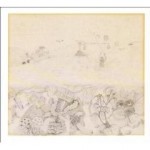
JM: Fair enough. Since you like Soft Machine, do you know Robert Wyatt’s solo album Rock Bottom?
EF: Yes. I have it on vinyl – someone gave it to me as a gift, which was very nice. I’ve only listened to it side to side. I haven’t ever just put on a song. It’s just one of those things where I’ve just put it on and enjoyed it.
JM: Be careful, you might put it on repeat 40 times!
EF: I only have that on vinyl, so I can’t really do that.
JM: That’s true. I have to say that my favorite Fiery Furnaces album is the first one. What are your reflections looking back at that particular album?
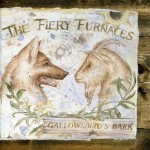
EF: [laughs] It’s funny to listen to. I hadn’t listened to any of that stuff in a really long time, and somewhat recently I started listening to the records again. What strikes me most about that one, for me personally, I wish I could sing that all over again, because I think I’ve gotten a lot better as a singer. So much of it to me sounds like out of tune. We did all the basic tracking, including the vocals, in three days. And we did it all on tape. It’s one of those things where I have to live with it, but it’s just now I would never do it that way. You know, a lot of it was just the scratch vocal takes that we kept. So to me that’s what strikes me as kind of a selfish thing.
But at the same time, I still remember the moment after our first day recording, my brother and I got in the car and drove home, and listened to these rough mixes of we had done that day. We were just grinning like little kids. I don’t think I’ll ever feel that kind of satisfaction again, that first time. I’d never done any multitrack recording before that. We had such a plan, and we really knew what we were going for, and then that we did it was just incredibly satisfying and fun.
JM: What advice would you give to an aspiring musician?
EF: Someone who wants to make records for a living? Or someone who just wants to play music?
JM: Either way. But let’s say someone who wants to make a living at it.
EF: I have no good advice for someone who wants to make a living making music these days, because it’s so fucking hard. If you really want to make a living at it you have to be willing to make a lot of compromises, I think. Otherwise, I think you need to get a nice job that you don’t hate [laughs] and play music in your spare time. For me, I started out when the music industry was just a little bit better. I wish I had started even sooner. But just from a young person’s point of view, and from a girl’s point of view, I always hung around guys who played music, and I was lucky enough to be hanging out with guys in college who included me. They could’ve easily excluded me. Your peers are really important. You need to have some pals to play with. For me, still, the best part about playing music is the camaraderie of it, and the team and gang-like feeling about it. It’s so satisfying and gratifying. The relationships that you form playing music are so special. It’s hard for other people to understand. Whatever I take away from all this isn’t going to be a lot of money in the end, but it’s going to be all these relationships that I’ve had over the years with people playing music, that’s kind of indispensable.
JM: I’m curious what your brother is up to. Is he working on solo projects now?
EF: He is. In fact, I think he had a show a couple nights ago. He’s playing with a couple of the guys we used to play with in The Fiery Furnaces, but it’s the drummer’s music. I’m not sure what they’re calling themselves. He was living in Paris for three years, and now he’s back in New York. I think you’ll hear from him. The world will hear more of him soon.
JM: Is there any talk of The Fiery Furnaces getting back together, even for a couple of shows?
EF: Nothing set in stone. Over the holidays my brother and I recorded a song together for a magazine called Esopus. It’s a very fancy magazine – I think they put out two a year, and there’s an accompanying CD with each issue. They had asked me to do it, and then since my brother was going to be up at my house for the holidays I recruited him to help me. So that will be the first Fiery Furnaces track out in many years.

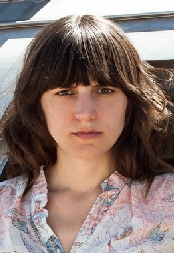
Discussion
No comments for “Interview: Eleanor Friedberger”